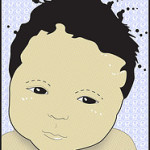Let’s face it, no matter how many pills we pop or tricks we try we will still be anxious from time to time. However practicing the art of desensitization can ensure that we can relax our attitude toward fear and handle anxiety symptoms just a little bit better than we do now.
First lets define what it means to be sensitized. When a person becomes sensitized they have essentially conditioned their body and mind to react to certain physical and psychological stimuli with extreme hypersensitivity.
For example, say you have built up an extreme fear of clowns. Every time you find yourself around clowns subsequently you will have an intense negative reaction. You have unknowingly taught yourself to fear clowns so much that the mere mention of the word brings to mind bad memories and even feelings (non-associative learning ).
Anxiety works much like any phobia in this way. Anxiety builds up over time and eventually it conditions you to fear things that you associate with fear, negativity, panic, etc.
Moreover sensitization creates a great deal of mental and physical tension that tends to wind us up into tight balls of nervous energy. Once we encounter an anxiety triggering event we release this tension in the form of intense fear, anxiety, and panic.
Despite all this we all still have to live, but the idea is that we don’t want to just live. All people aspire to be happy and as free from pain as humanly possible. Desensitization can help us to achieve the goal of reducing anxiety and help us cope with panic.
Now the two most common means of anxiety reduction are drugs and shrinks. Both have their merits and can help a great deal, but because we can’t always take meds on the road or take along our favorite therapist to every social event we need other tools that can be used at any time.
The process of desensitization is just such a tool and it has four basic tenets. They are recognizing second fear, releasing tension, controlling emotional reactions to fear, and exposure.
Recognizing Second Fear
This is a concept I first learned from the late Australian anxiety expert Dr. Claire Weekes. This is perhaps the most simple tenet to understand, but also the most difficult to implement.
You see when we panic or get nervous in general it usually occurs in stages. You first become aware of the fear or anxiety, amplify the anxiety, and finally have a panic spasm of some kind. We want to deal with the amplification part of the problem here.
You can identify the amplification or second fear because it is usually experienced in conjunction with phrases like, “oh my god”, “I’m going to die”, “I’m having a panic attack”, etc. You essentially pick up on the fact that you’re experiencing anxiety symptoms and immediately (although unintentionally) begin to project all the tension, fear, and stored up anxiety you have inside of you.
The first involuntary feeling or thought of anxiety is almost always distinct from your secondary reaction. This is your opportunity to calm the fire before it picks up more fuel. In other words, do not add to your fear, and refrain from adding secondary quandaries about what might happen. Only deal with the reality presented to you and nothing more.
You must learn to control the wild imagination that anxiety has fostered for so long, and this is hard to do. But with awareness, practice, and time you can develop this skill to help you reduce anxiety.
Releasing Tension
Of the four tenets of desensitization this is the most straight forward. It involves the release of tension through physical activity. Ideally this would include things like exercise or yoga, but it can include any physical activity that increases your heart rate for at least thirty minutes several times a week.
This physical activity will help release endorphins into your blood stream, loosen major muscles that store tension, and promote feelings of relaxation. Even if you’re completely out of shape and can’t necessarily get all hardcore about it, just be sure to get active.
Emotional Reaction To Fear
Have you ever heard of the term “drama queen”(this includes men)? Sure you have so I don’t have to explain what being a drama queen entails, but I will say that you should not be one. Flying off the handle and being overly emotional about your anxiety will only hinder your ability to control your fear.
It’s o.k. to be emotional, we are human after all, but remember that moderation should take the lead. If you start freaking out emotionally every time you panic or feel anxious you will actually aggravate yourself and invite more fear and tension.
Exposure
Slow exposure overtime to the things we fear can help us to adjust and recondition ourselves away from fear and anxiety. Some might say, ” what’s the point of exposing myself to fear”? After all being a afraid doesn’t feel good. Well I hate to get socratic on you, but what’s the alternative?
The alternative is non action, which means no results. That’s like a person wishing for a boat load of money but refusing to work, it just doesn’t make sense. We have to do things to get things. Exposure is the act of facing our fears so that down the line we can live with less fear.
The four tenets of desensitization I just laid out take time to master. Moreover, its important to understand that even with recognition and more control of your fears anxiety will still strike. Anxiety will come again on its own because that is the definition of having an anxiety disorder. It is out of control fear and worry that lingers on for long periods of time for no apparent reason.
You will still feel nervous sometimes, you will still get panicky every now and again, but its always worth trying techniques that will help us do more with less fear. I can’t begin to tell you how many times I have ‘caught’ my anxiety from going south.
Time after time I’ve been able to reduce my anxiety and handle it effectively, but not because I’m not hit with anxiety occasionally, but becomes I accept my fear and have learned to add as little as possible.





Interesting. It sounds easy, but to practice it would seem to be more difficult. I’ve used the search on google to learn how to deal with it as my last 2 years has been unbelievabley stressful with deaths within my family, the economy, loved ones losing their jobs and suicides… my first reaction is, “what pushes us over the edge”? and Am I anywhere near that? I get dizzy, heart rate increases and I haven’t felt “normal” since way before my mother passed Dec of 2007. Husband filed for a divorce in 2007. I just learned today that a friend of mine came home to their room mate hanging dead in their garage…. what next? when’s the crap going to end?
Hi Marie, I’m very sorry to hear about your mom’s passing and the other tragedies you’ve experienced.
Honestly, anxiety or not that is a difficult situation. All I can say is that despite the hardships life can still be beautiful. Is it easy to relax in the face of so much? Of course not, but as far as I can see life ends for all of us no matter what. Time marches on with haste no matter what. So, instead of focusing on that which I cannot control I look to the things I can influence. My attitude, outlook, the things I do, etc.
Let me paraphrase a quote I heard once. Life isn’t about stopping the rain, its about learning how to dance in the rain. Hang in there.
trying this for the last few weeks. Tis been very hard and scary. I have been houseblound on and off for the last 10 years. Hopefully this helps. May aswell give it a shot. Thanks
Yup, I’ve sensitized myself to the point I feel everything, and react to everything. Not sure why, but I did have a stressful week last week, and I’m paying the price for it right now.
We’re talking about not being able to swallow while working out (I stop and then I’m able to). It lasts about 2 seconds, but in those 2 seconds, I’ve started to wonder whether I have MS, or Parkinson’s, or Lou gehrig’s. Yup, I’m admitting that now!!!! Damnit…
I’ve told myself I need to set up my life insurance policy to reflect my fiancee as my primary. I wish I was making this up. Should I worry? I’ll find out in 3 weeks during my annual physical. The one thing I am not doing is Googling “not being able to swallow.” I think I already have enough on my mind.
Do I beleive everything is okay? That all these sensations are because of GAD? Yes and no. It’s hard when you’re constantly reminded of what’s wrong with you (the feelings, sensations, and the thoughts.) I don’t want to die, yet at times, it feels as if this cannot possibly be because of anxiety. But, I need to stop what-if’ing because it’s doing me no good. And by the way, I’m not nervous about my doctor’s appointment in 3 weeks. It is what it is, and I’m ready for the good or bad (can’t be both in my opinion).
Have a good one and hope everyone is feeling better than I am right now.
This is a very good article and am glad to have stumbled upon it and techniques herein I unbeknownst have already incorporated. Small example: My brakes are bad, and I have already ran my leg over in the past (nothing broken!) BUT believe it or not, since I drive daily I think more about running my leg over than about being raped. Makes sense, since there is no other rape, but driving, thats a life necessity. The more I drive, the easier it gets… Do not mistake me, due to the severity of the “ptsd” I still shake, cry, and become paranoid at the mere thought of cars. If I need to pull over I will. Sometimes we just need to pull ourselves over from things and get a fresh perspective.
I haven’t been to the website in a while, but it came up when I Googled “how to desensitize nerves/anxiety” this morning. Once again I’m reminded of how much good advice I’ve had from you in the past. Excellent article. Thanks.
Good Morning,
Can you please tell me if this could work with someone that is “deathly” afraid of snakes? I read this article and I can recognize the second fear because when my sister sees a snake she says, “Oh my God” and then she can’t catch her breath. These are non-poisonous and so we want her to get use to snakes so she will have the good ones to keep away the bad ones.
Thank you for your help,
Dawn
For anyone reading this, this process actually works. I went through it with a therapist for a hot minute then continued to work on it myself. I’m not overly sensitive anymore, and I can control my emotions without being “triggered” easily. Do it.
Great article. I have Dr Claire Weekes book and it helps a lot especially not knowing I’m not alone. I got oversensitized on an overseas trip to a third world country. I got sick over there and could not get medical attention. For a couple weeks I was bewildered and feared the worst. When I returned home I was diagnosed with a hernia. That was the good news. The bad news was I got oversensitized to sounds, movements and touch. I had most difficult time with sensations when fatigued and out in malls or stores with bright lights. I have made significant progress once I accepted I had anxiety and not some dreaded disease. Still not symptom free but I can work and play and have good relationships. I might feel uncomfortable but I try not to let that stop me. The thing that hurts me is when I have a setback and I dwell on wanting to be the person I used to be before this encounter with anxiety.